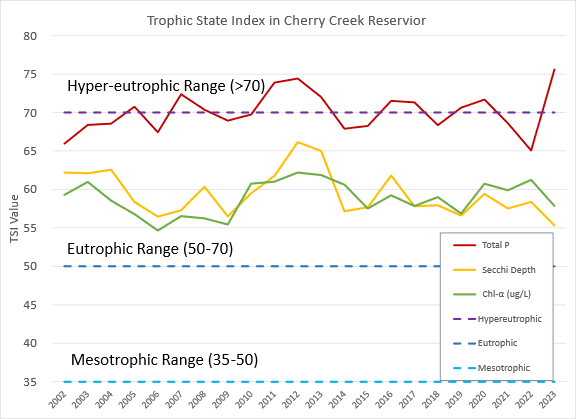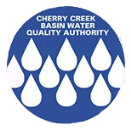Trophic State Index
Highlights:
In WY 2023, the Reservoir’s trophic state was classified as eutrophic to hypereutrophic. Higher TSI values are associated with higher nutrients and more primary productivity (algal growth).
The Trophic State Index (TSI) is a measure of the biological productivity of a water body. The most common TSI uses three water quality parameters to determine the trophic state: total phosphorus, Secchi depth (a measure of water transparency), and chlorophyll α.
There are four main levels of biological productivity: Oligotrophic (Low), Mesotrophic (Moderate), Eutrophic (High), and Hypereutrophic (Excessive). Higher TSI numbers are associated with increased probabilities of encountering nuisance conditions, such as algal scums.
Based on the historical Carlson TSI, Cherry Creek Reservoir has been considered eutrophic for Secchi depth and chlorophyll α, and ranges between eutrophic and hypereutrophic based on total phosphorus concentrations since 2002. Although year-to-year variability is present in the TSI, an increasing (declining water quality) trend is not present, despite significant increases in population and development within the watershed.
Trophic State Classifications and Ranges (May- September)
Useful Links

Trophic State in Cherry Creek Reservoir (2002-2023)

